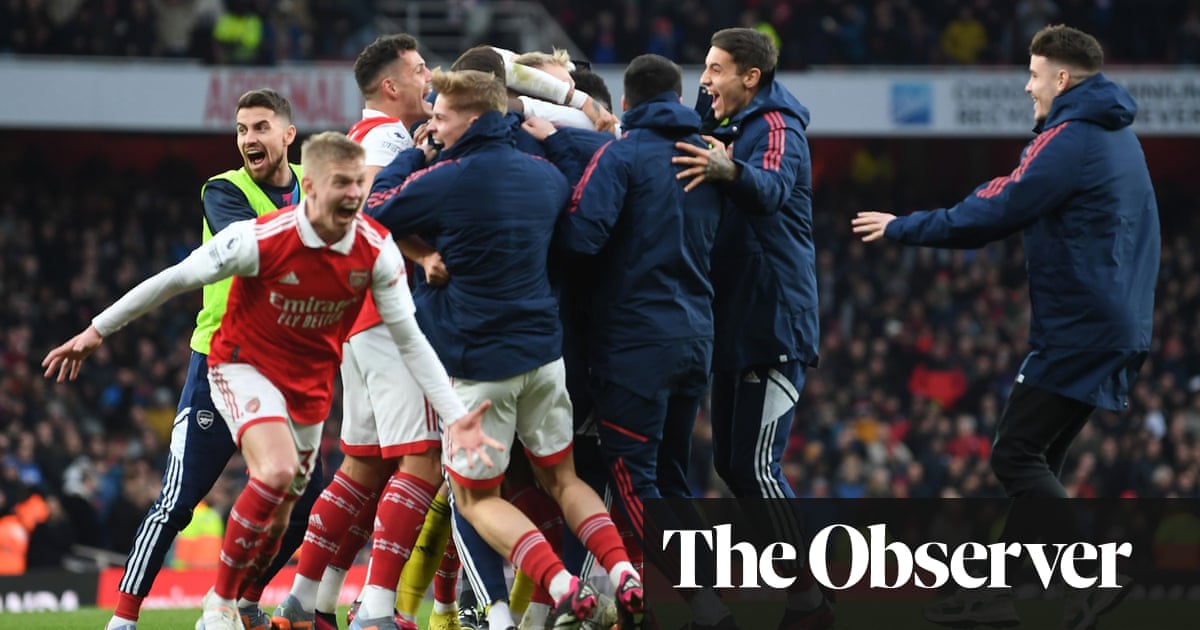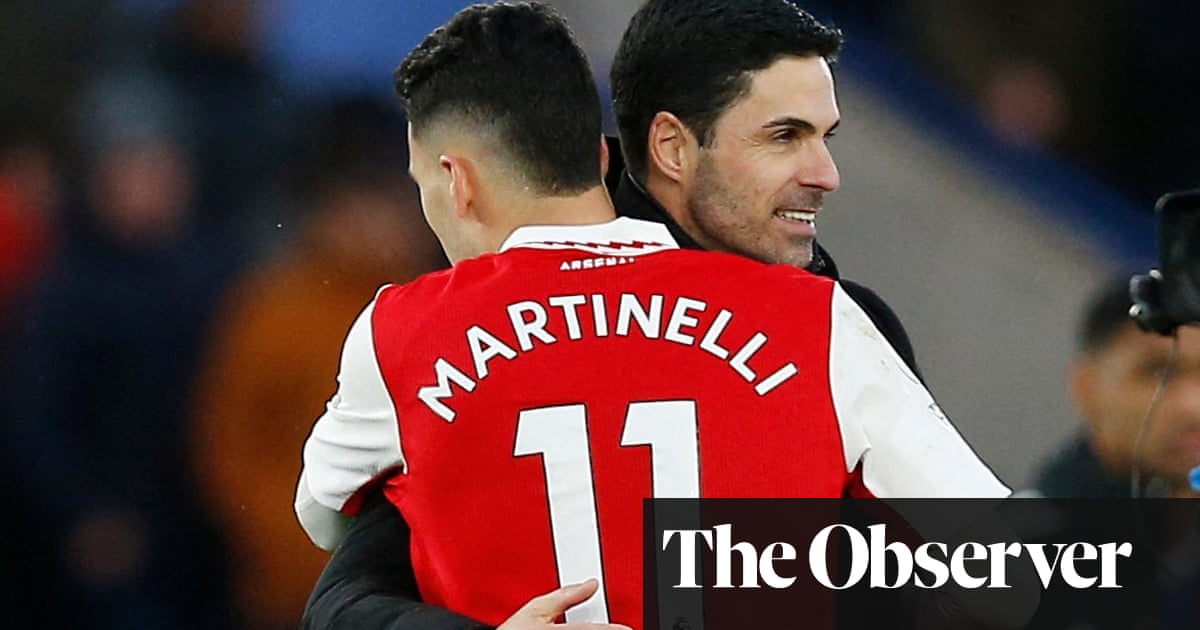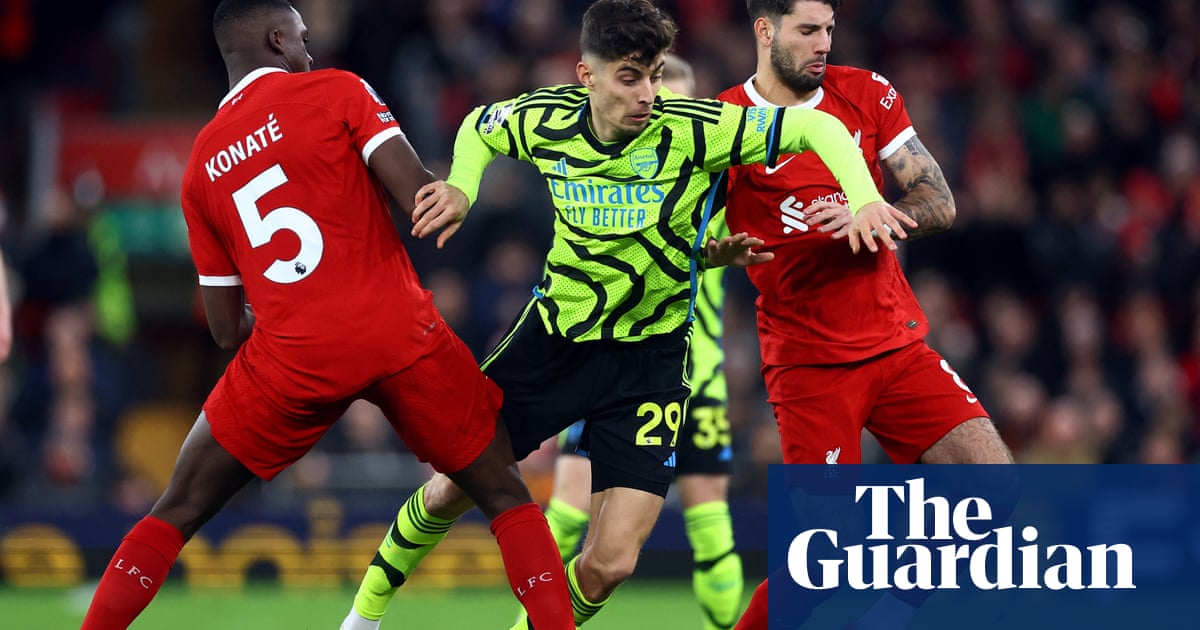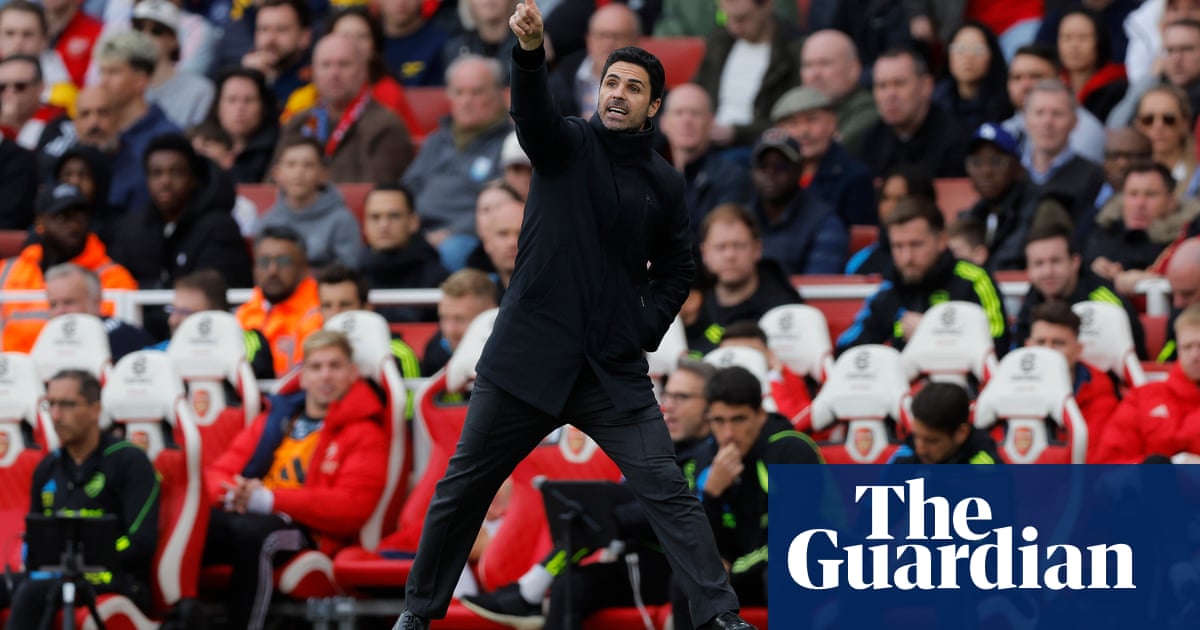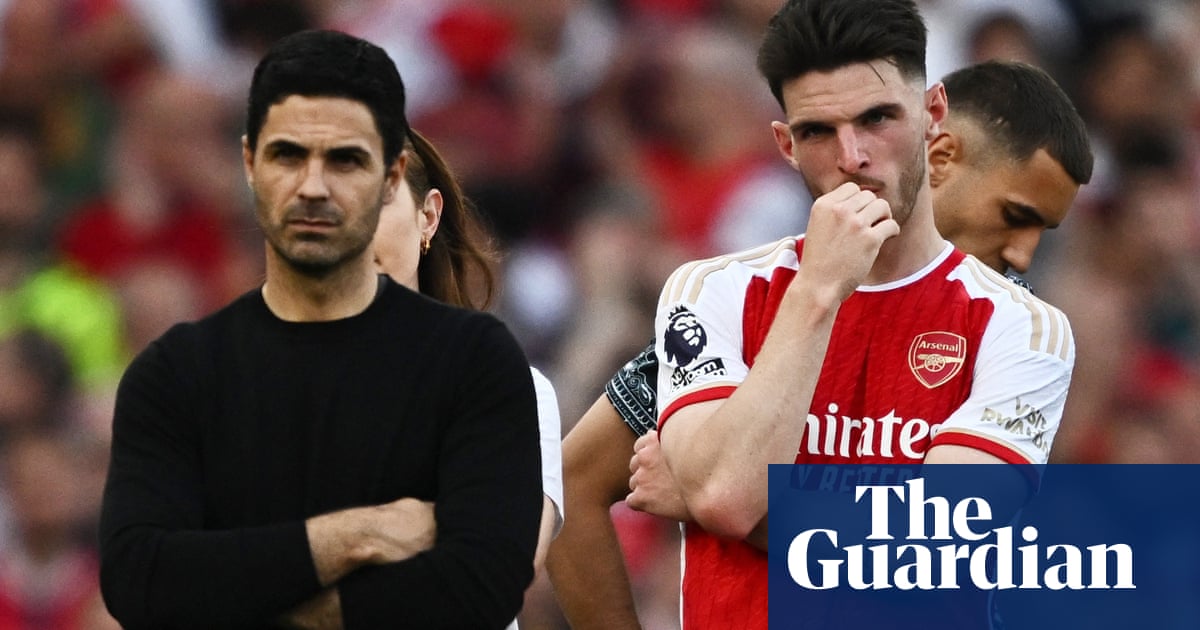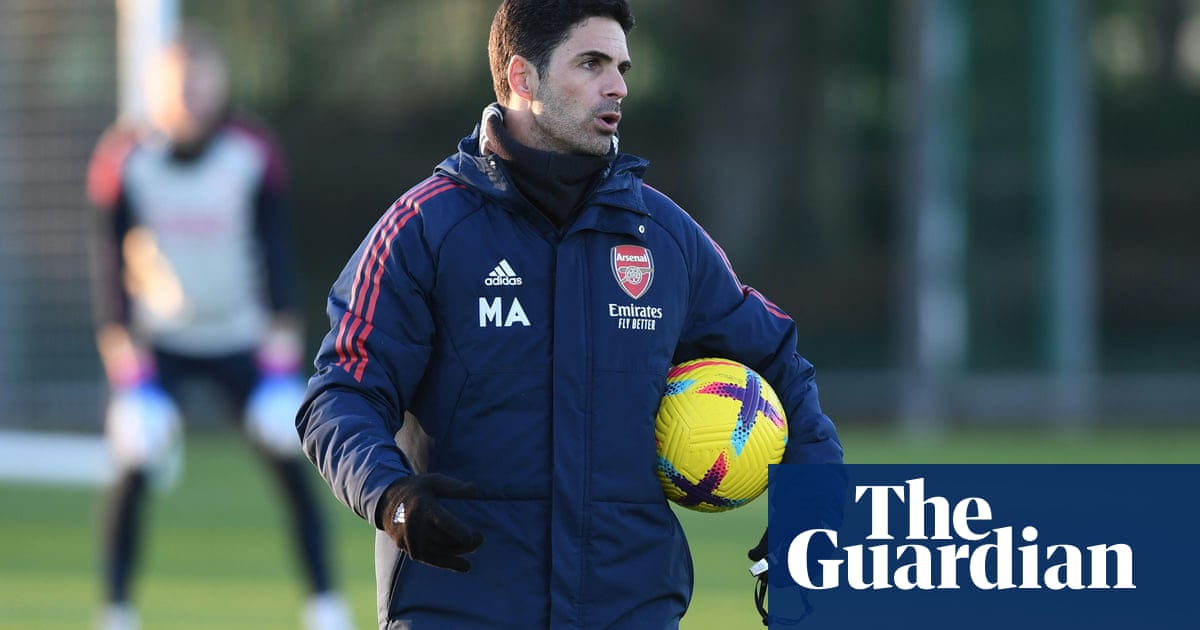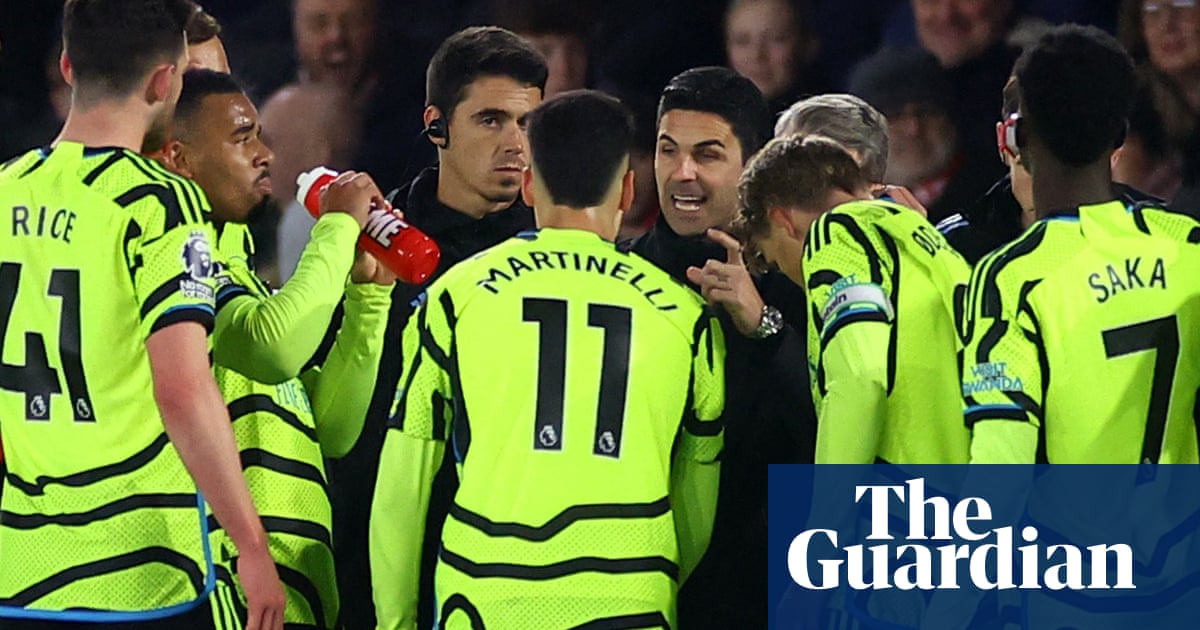
Well, that was unexpected. As Mikel Arteta looked forward to Sunday’s showdown against Liverpool at the Emirates Stadium, a game with massive implications for the Premier League title race, he was taken back to Tuesday night’s 2-1 win at Nottingham Forest. And specifically to the on-pitch row between Oleksandr Zinchenko and Ben White after the full-time whistle, when passions boiled over.
The defensive teammates were furious about how Arsenal had conceded. It is probably fair to say, too, that things would have got a lot more heated if they had done so again in stoppage time, as they nearly did after a half-cleared corner; David Raya had to save from the Forest striker Taiwo Awoniyi. So, were Zinchenko and White friends again?
“Yeah … they’ve been in the same house the past few days, sharing wives and everything,” Arteta said. “It’s fine, they’re living together now. They’re best mates.”
At which point it is very important to stress that Arteta was joking. He went on to say, as he had done on the night, that he loved this kind of commitment, also the way it reflected the chemistry within his team because “you don’t argue with someone if you don’t have a great relationship”. The manager added: “I want my players to always have the desire to be better and be demanding. If not, it’s Disneyland.”
It was actually good to see Arteta injecting a bit of humour to his press conference, a little personality. As the pre-match pressure bubbled, it was possible to consider it as evidence of his growth in the job, of greater comfort.
What was more predictable was Arteta’s reaction to surely the biggest single problem facing his team – when they have to be heartless and clinical with the final action in front of goal.
It has felt this season, when compared with last – in which Arsenal challenged seriously for the title until the final weeks – that they have been more structured in their buildup play and, by extension in the bad moments against deep-sitting opposition, more formulaic and predictable.
At Forest, they could be accused of trying to score the perfect goal, which they almost did in the 57th minute at 0-0 when White passed inside, Bukayo Saka backheeled and Martin Ødegaard swayed one way before playing in Gabriel Jesus, who was gloriously placed. Frustratingly, he lashed against a post.
That may be the impression but Opta’s statistics do show Arsenal have taken more shots on average per league game this season and created more big chances. What is irrefutable is that they have scored fewer goals per game and had a much lower shot conversion rate, which goes for the big chances, as well.
It was particularly obvious in the last meeting with Liverpool in early January – in the FA Cup at the Emirates – when Arsenal dominated for the opening hour but could not put the ball in the net. Liverpool ended up scoring a couple of late goals to advance, Arteta saying afterwards that he feared his players had developed a psychological block.
One of Arteta’s mentors, Pep Guardiola, would say when he was in charge at Barcelona that his aim was to get his attackers in the right positions; then it was up to them. In the recently released BBC documentary on Guardiola, his main striker at Bayern Munich – Robert Lewandowski – went on record with this, saying Guardiola had told him he could not help him to finish but he would do everything to feed him.
Arteta does not accept this. Ever meticulous in every detail, he believes that a manager can absolutely help his players with the final, most crucial action and it was interesting to hear him detail some of his processes in the preparations for Liverpool.
“I showed the players a lot of images [clips] after 54, 57, 63 minutes [of the FA Cup tie against Liverpool] … chances … and the reaction of all the players was incredible to each other,” he said. “Against Fulham [in the 2-1 league defeat on 31 December] I did not like it. At 1-1, Bukayo missed a huge chance and I did not like that reaction.
“The scoreline reflects what the team produces. And we have to coach that, we have to evolve the play, we have to create more situations. That has to fall on us [the coaching staff] – that’s for sure.”
Arteta worked as Guardiola’s assistant at Manchester City and he was interviewed for the documentary. He said he had not seen it yet but a lesson he learned from that time resonates now – the imperative to stay true to one’s beliefs, especially at the high-stress moments.
“It was one of the most impressive things that I witnessed at Man City,” Arteta said. “After the first very difficult year [when Guardiola won nothing], everybody in England was saying you cannot play that type of game. From the top [of the club], they said: ‘We’ll keep going in the same direction. We fully believe in what you’re going to do.’ There was zero question to go in a different direction and for me that was the key point when they took off.”
Arteta can eye a moment of potential ignition. It feels like a must-win game against Liverpool and he would take the points however they came.
“I don’t mind ugly goals,” he said. “I love ugly goals. I love cheap goals. Let’s have them. But you have to produce them. I don’t know how to coach that – to tell someone to hit the post, hit it off someone’s head and then it goes in the other direction.”




